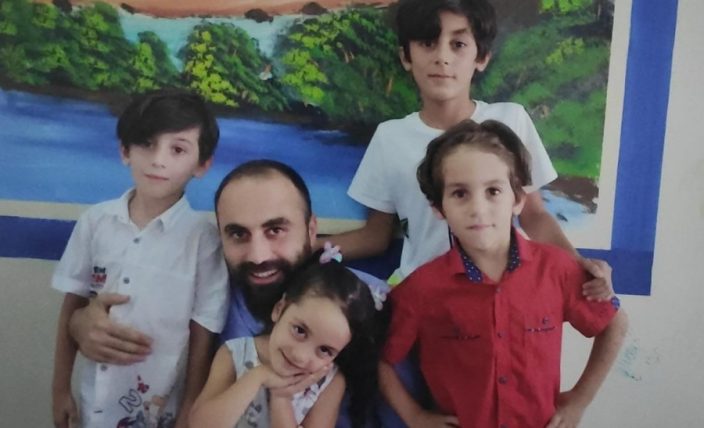The family of former police officer Ali Osman Kayan, a father of four serving a sentence for conviction of links to the Gülen movement, said they have not been able to visit him for nearly two years due to the distance between the prison he’s in and the family home in Izmir.
Speaking to Bold Medya, Kayan’s wife said they have to travel 1,300 kilometers to visit her husband in a prison in eastern Elazig province. Kayan’s four children have not been able to see their father since February 3, 2020.
“My eldest son said he could barely remember his father’s face,” said Kayan’s wife. “The last time we went to visit my husband, the youngest children said they did not want to go anymore because it was a long journey for a very short visit.”
Kayan’s wife added that their only means of communication has been short telephone calls for the past two years.
Although Kayan appealed to authorities several times asking to be transferred to a prison closer to his family, his petitions were not approved.
Kayan was arrested in November 2016 and sentenced to 18 years in prison. His case is currently with the Supreme Court of Appeals.
Turkish President Recep Tayyip Erdoğan has been targeting followers of the Gülen movement, a faith-based group inspired by Turkish cleric Fethullah Gülen, since the corruption investigations of December 17-25, 2013, which implicated then-prime minister Erdoğan, his family members and his inner circle.
Dismissing the investigations as a Gülenist coup and conspiracy against his government, Erdoğan designated the movement as a terrorist organization and began to target its members. He intensified the crackdown on the movement following a coup attempt on July 15, 2016 that he accused Gülen of masterminding. Gülen and the movement strongly deny involvement in the abortive putsch or any terrorist activity.
According to Article 8 of the European Convention on Human Rights (ECHR), everyone has the right to respect for his or her private and family life, their home and their correspondence. Public authorities cannot interfere with the exercise of this right except as is in accordance with the law and is necessary in a democratic society in the interests of national security, public safety or the economic well-being of the country, for the prevention of disorder or crime, for the protection of health or morals, or for the protection of the rights and freedoms of others.
In 2019 the European Court of Human Rights (ECtHR) ruled in favor of two political prisoners and said Turkey had violated Article 8. Both prisoners were sent to a prison more than 800 kilometers from their families. Abdulkerim Avşar and Abdulkerim Tekin appealed to the court saying their families could not visit due to the long distance.
Turkey was ordered to pay 6,000 euros to each in compensation and 1,000 euros to Avşar for expenses.
Source:Stockholm Center for Freedom (SCF)
***Show us some LOVE by sharing it!***



